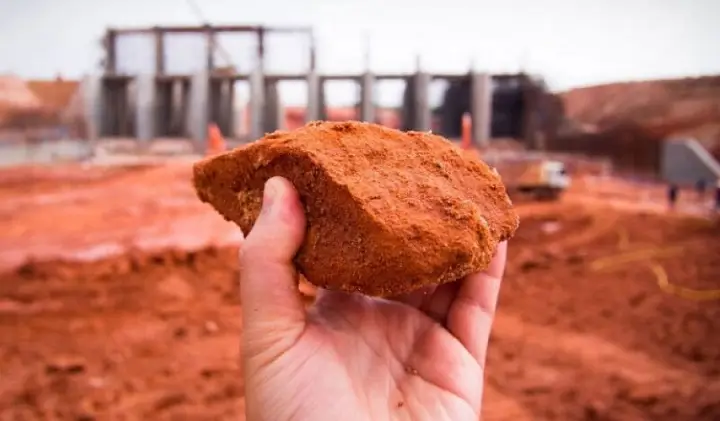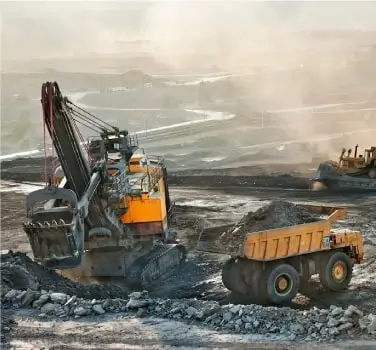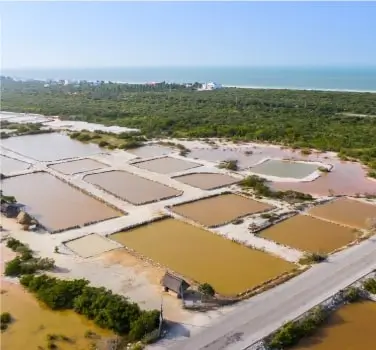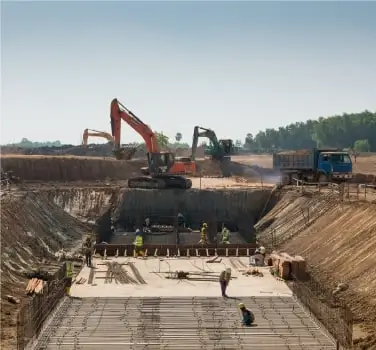About Us
At Urban Blueprints, we are driven by our passion to build the infrastructure that connects our communities and shapes the world around us.
Contact UsContact Info
- --
- --
- [email protected]

A Foundational Pillar of Civil Engineering
Geotechnical engineering, also known as geotechnics, is a crucial branch of civil engineering that studies the behaviour of earth materials, particularly soils and rocks. It encompasses various applications, from designing foundations for buildings and structures to managing soil erosion and landslides. Geotechnical engineers play a role in ensuring infrastructure projects' safe and sustainable construction.
Foundation Design: The Cornerstone of Sustainable Structures
Foundations, the bedrock of any structure, are designed by geotechnical engineers to transfer the loads from the structure to the underlying soil or bedrock. Their expertise in soil mechanics enables them to select the appropriate foundation type, such as spread footings, piles, or deep foundations, based on the subsurface materials' properties and the site's load-bearing capacity.
Soil and Rock Mechanics: Understanding Earth's Building Blocks
Soil mechanics delves into the behaviour of soils under various loading conditions, considering factors like stress, strain, and deformation. This knowledge is crucial for designing foundations that can withstand the weight of structures without excessive settlement or instability. On the other hand, Rock mechanics focuses on the behaviour of rocks under stress and fracture conditions. This understanding is essential for designing tunnels, retaining walls, and other structures interacting with bedrock.
Site Investigations: Unearthing the Secrets Beneath
Before embarking on any construction project, geotechnical engineers conduct thorough site investigations to assess the subsurface conditions. This involves drilling boreholes, collecting soil samples, and performing in-situ tests to determine the soil's properties, such as its strength, compressibility, and water content. This information is essential for selecting the appropriate foundation type and designing the structure to withstand the challenges posed by the subsurface environment.
Environmental Impact Assessments: Protecting the Earth's Balance
Geotechnical engineers play a vital role in environmental impact assessments, evaluating construction projects' potential risks and impacts on the surrounding environment. They assess the potential for soil erosion, landslides, and groundwater contamination and recommend mitigation measures to minimise adverse environmental effects.
Construction Monitoring and Remediation: Ensuring Stability and Resilience
Geotechnical engineers monitor the behaviour of structures during construction and throughout their service life to ensure their stability and resilience. They use instrumentation, such as inclinometers and piezometers, to track soil movements and pore water pressures. This data is used to identify potential problems early on and implement timely remediation measures to prevent structural damage or environmental hazards.
Applications of Geotechnical Engineering
The applications of geotechnical engineering extend far beyond foundation design. Geotechnical engineers involved in a wide range of projects, including:

Excavation and earthworks:
Designing and managing excavations for tunnels, foundations, and other structures.
Slope stability analysis:
Assessing and mitigating the risk of landslides for embankments, dams, and road cuts.


Remediation of contaminated soils:
Designing and implementing solutions for contaminated sites to protect human health and the environment.
Groundwater management:
Designing and implementing drainage systems to control groundwater flow and prevent erosion.


Geosynthetics:
Utilising geosynthetic materials, such as geotextiles and geomembranes, to reinforce soils, stabilise slopes, and enhance drainage.
Determination
Geotechnical engineering is a cornerstone of sustainable development, ensuring the safe and efficient construction of infrastructure supporting our growing communities without compromising the environment. As the demand for infrastructure grows, the role of geotechnical engineers will become even more crucial in ensuring that our built environment is resilient, sustainable, and environmentally responsible.


